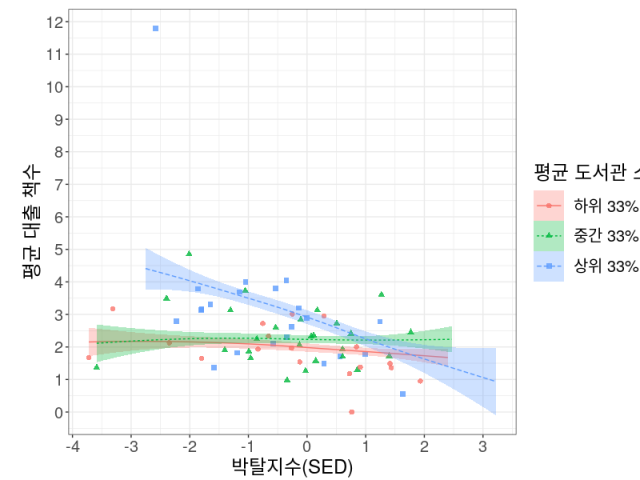
This study analyzes the effects of community-level socioeconomic deprivations (SED) on public libraries’ book circulation in the Seoul metropolitan area. The study design draws upon the theory of local information landscapes, which explains the relationship between community characteristics and information behavior. Using four-year (2015-2018) open government and public library circulation data, we constructed a socioeconomic deprivation index by adjusting a multi-dimensional deprivation index and generated other variables. Multi-level robust linear regression models were used to examine the relationship between SED and public library circulation. In addition, we tested the moderating effects of the library collection size and the number of libraries per unit area, respectively, on library circulation. The results show that there is a significant negative relationship between socioeconomic deprivation and library circulation rate. Also, we found that the size of the library collection negatively moderates the effects of SED in areas with a large number of books, and the number of libraries per unit area was positvely related to the library book circulation, not moderating the effects of SED. These findings suggest that public libraries and policymakers should consider community characteristics in designing strategic plans for public libraries.
* Myeong Lee is the corresponding author.
* This paper is written in Korean. Contact me if you need the paper details in English.
Lee, J., Kang, W., & Lee, M. (2021). The Effects of Socioeconomic Deprivation on Public Library Book Circulation: A Community-level Study. Journal of the Korean Library and Information Science, 55(4). pp. 219-243